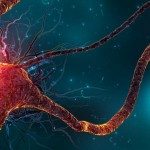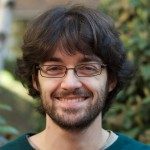Background:
Understanding information processing in the brain requires recording their electrical and biochemical activity across broad spatial (nm to mm) and with fast temporal resolution (~1ms). This is currently achieved through direct electrical recordings with electrodes or more recently using fluorescence indicators that can be used as a proxy for either nerve impulses or synaptic activity. However, often the signals suffer from either poor signal-to-noise or nonlinear readout. To increase the efficiency of such methods it is thus advantageous to make use of i) principles from signal processing that can improve the accuracy and reliability of the recordings and ii) techniques from machine learning that can extract the maximum amount of information from a given data set.
The advent of genetically encoded calcium indicators has opened the door to monitoring neural activity in awake behaving animals, since it can be used as a proxy for electrical activity, and thus allowing us to more directly examine the neural basis of behavior. However these calcium indicators suffer from nonlinear behaviors in the physiological regime, which significantly hampers the detection of underlying nerve impulses.
Project:
Within the scope of the internship we would like to develop, i) a generative model that describes how neuronal electrical activity evokes fluorescent calcium signals and that explicitly includes known non-linear properties of state of the art calcium indicators; ii) an algorithm for extracting the model’s parameters from experimental data. Our approach will be based on a machine learning technique previously used to extract information about synaptic transmission from electrical measurements.
Profile of the student:
The candidate is expected to have some experience in programing and image analysis. Enthusiasm for multidisciplinary research and biophysics is a strong asset. Skills in experimental optics are welcome.
Application:
Qualified candidates are invited to email their applications including a CV and a statement of interest to:
David DiGregorio ( david.digregorio@pasteur.fr )


